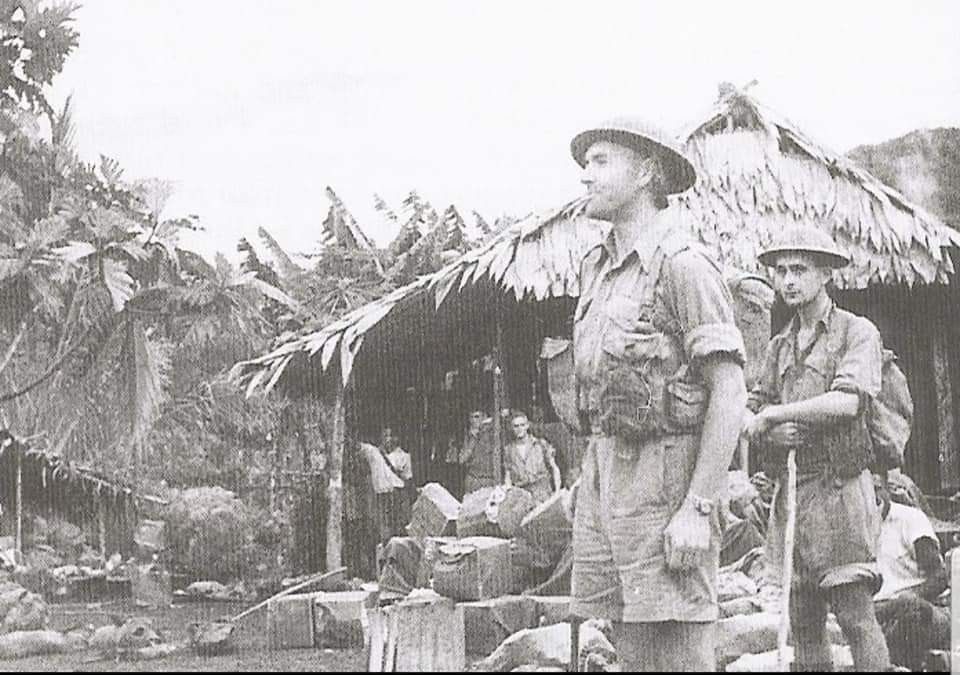|
It seemed highly unlikely that a boy christened ‘Hyacinth’ would one day become one of the great figures in Australia’s military history. His devout Irish Catholic mother may have admired St Hyacinth as a heroic strategist who spread the Christian message from China to Scotland in the 12th century, but the name Hyacinth Honner predictably caused the quiet lad from Three Springs, 300 km North of Perth, a great deal of grief at boarding school! He swiftly resorted to using his second name, Ralph. Hefting 180-pound wheat bags on the family farm at Dalwallinu bulked the slight, scholarly boy into an accomplished athlete at the University of Western Australia between 1923-25. In his studies in English and History, Ralph developed a deep affection for two key concepts – chivalry and the epic. These gave shape to his unshakable Catholic ideals and fired a conviction that he should live and die - with absolutely no half measures – by what he believed in. They melded into the steel that became the backbone of Ralph Honner’s career as a soldier. It would be a mistake to see the romantic schoolmaster as a mere adventurer. Ralph Honnor was a man of faith with a profound sense that it was his duty to resist evil and so, when Hitler launched war in 1939, he made strenuous efforts to join the AIF. Within months, the 35-year-old Captain was leading his hand-picked 2/11th Battalion into conflict, first in Libya, then Greece and Crete, where he excelled as a battlefield commander.
Ralph Honnor’s cool and decisive command in extreme situations showed he was, in fact, living out his core beliefs and his men admired him for it. His battlefield philosophy was simple… ‘all war is a confidence business. If there isn’t confidence in your mates and in your leadership and your weapons and your training, you’re not good soldiers.’ After a baptism of fire from the German Luftwaffe in Crete in 1941, he was promoted to the rank of Major and recommended for the Military Cross for ‘leading his men on all occasions with courage, cheerfulness, calmness and skill.’ Ralph was then thrown into an even more severe test of his leadership half a world away on the Kokoda Track in New Guinea. At the time, mainland Australia appeared under threat of invasion by the unstoppable Japanese Army. On August 16th 1942, he arrived at Isurava to take charge of under-prepared young 39th Division Militia soldiers, worn down by a strenuous retreat over steep mountain slopes and fighting a well-trained jungle force ten times their number. Their confidence was gone, their resources poor and their situation desperate. His directive was to hold the Japanese until the seasoned soldiers of the AIF arrived. Now a Lt Colonel, Ralph used the few days he had, calmly rehearsing a clear plan of defence and working his troops into a cohesive fighting corps. His dynamic leadership and unflinching faith saw the young militia lift themselves to make a decisive stand, despite their deteriorating physical condition. He wrote admiringly, ‘In the testing crucible of conflict, out of a welter of defeats and disasters, of mistakes and misfortunes, of isolated successes and precipitate withdrawals, they were transformed by some strong catalyst of the spirit into a devoted band where every man’s failing strength was fortified and magnified by a burning resolve to stick by his mates.’ The bloody defence at Isurava has been enshrined as an epic in Australian military history and today hundreds of trekkers make the arduous climb to visit the memorial there. Ralph’s speech to the exhausted men of the 39th Battalion after their heroic defence at Isurava has been compared to Henry the Fifth’s great oration. Later, he chose the darkest chapter from the Gospels to convey the suffering of his men on the Kokoda Track, describing it as “a soldier’s Calvary…that grim Golgotha.” The Japanese eventually retreated and Ralph’s forces inflicted a decisive defeat on the enemy at Gona on the Northern coast of New Guinea, where he was severely wounded. In 1961, Ralph Honnor was elected the first Catholic President of the Liberal Party in NSW and there he won a peacetime battle which again showed the measure of the man. He fought to have a prayer prayed at all their important meetings - one almost certainly born out of his experience of fighting impossible battles in the desert at Tobruk, in the olive groves of Crete and high on the jungleous Kokoda Track. ‘O God, grant us in our deliberations the aid of Thy divine wisdom that we may see clearly, speak with truth and act with courage and justice so that in all our works, Thy will may be done.’ A remarkable thing happened as Lt Colonel Honner DSO, MC was being laid to rest in the Northern Suburbs cemetery in Sydney in 1994. Amid the hushed formality, out from among the dignitaries, an uninvited Japanese veteran approached Ralph’s flag-draped coffin, gave a formal bow and presented the family with a letter of condolence. That simple, heartfelt gesture by a former foe, signalled the power of the old warrior’s faith, moral strength and skill in battle, to win the respect of friend and enemy alike. I like to think that given the chance, another veteran Christian soldier - St Hyacinth of Poland, the Apostle of the North, would have done the same.
2 Comments
Gaye Robinson
10/15/2022 10:36:11 pm
Thanks again Dr Paul for your literary prowess in this condensed biography of an Aussie man who honoured our God. He encountered extreme challenges continuing to rely on his faith in multiple challengeing warzones.
Reply
The Outback Historian
10/21/2022 08:09:20 pm
Gaye. It’s a privilege to take a story like this and bring it back into the light. Ralph Honnor was a man of exceptional courage - a true leader in every sense. I hope he becomes a hero to new generations. I can see he has inspired you. Great!
Reply
Leave a Reply. |
AuthorJoin The Outback Historian, Paul Roe, on an unforgettable journey into Australia's Past as he follows the footprints of the Master Storyteller and uncovers unknown treasures of the nation. Archives
October 2023
Categories
All
|
|
Sponsored by
|
Privacy Policy
|
|
Copyright 2020 by The Outback Historian
|
Site powered by ABRACADABRA Learning
|




 RSS Feed
RSS Feed

